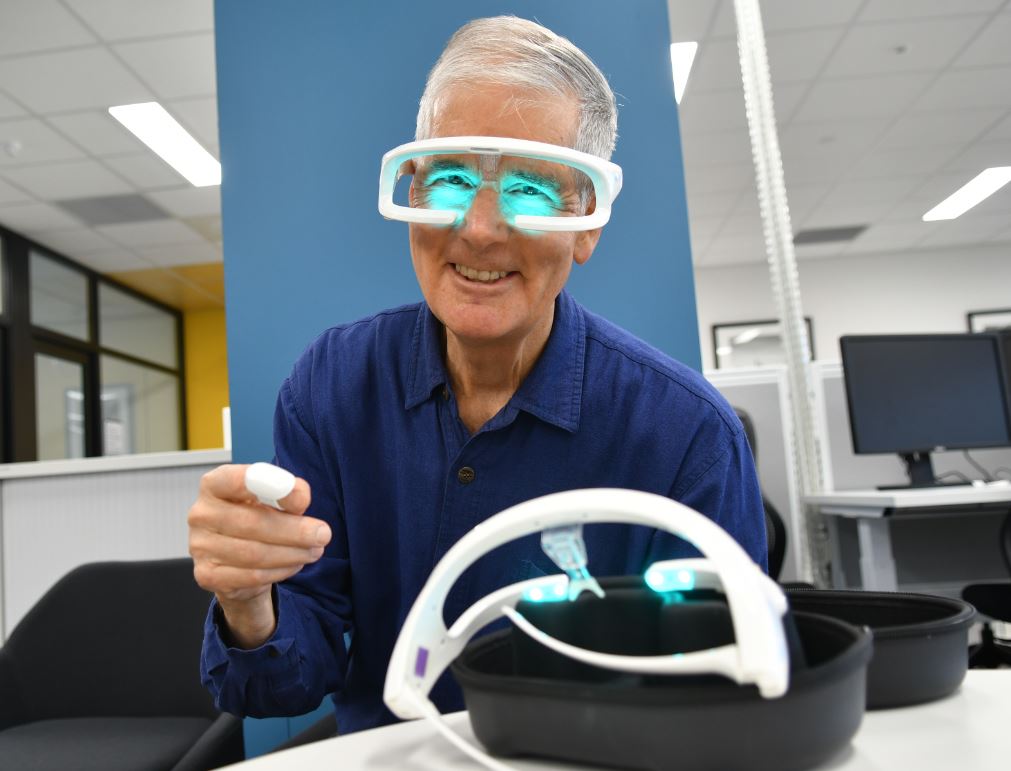
Stuck at home and having trouble getting to sleep at night? Researchers and sleep therapists at Flinders University have developed wearable devices to treat sleep onset insomnia at home.
Emeritus Professor Leon Lack at Flinders University, who has long studied and treated insomnia and researched the role of light in setting and disrupting sleep patterns, has played a critical role in the development and commercialisation of new wearable devices to administer treatments for sleep onset insomnia in the home situation.
“The COVID-19 pandemic has drastically changed the lifestyles of our community, with many suffering increased stress, and sleep patterns have suffered,” says Professor Lack. “Getting off to sleep is likely to have become a much more common sleep problem.”
Professor Lack was integral in developing Re-Timer glasses that use LED lights to adjust people’s circadian rhythms, and are now used around the world. He is now supervising studies that test the effectiveness of new devices for treating sleep onset insomnia.
The Adelaide Institute for Sleep Health at Flinders University is calling for 18-64-year-old participants in a pair of studies focusing on the same type of insomnia issues.
One study evaluates a portable device for phase advancing the circadian rhythms of people suffering from sleep-onset insomnia. Enquiries about this study can be directed to Study Coordinators Chloe Noon or Nicole Lovato at sleep@flinders.edu.au
A second new treatment study testing a consumer device, being a smart ring that helps the wearer to enjoy better sleep. Participation involves completing a 5-minute diary about your sleep every morning for one week, and you may be asked to complete two nights of home treatment. Interested participants can email Hannah Scott with the subject line ‘THIM Treatment Study’ at sleep@flinders.edu.au
The studies do not require travel away from home, as the devices are delivered to each participant’s home, and assistance is available on line or over telephone.

“If you have had a sleep problem that mainly involves difficulty getting to sleep at night, you could help by participating in these new studies,” says Professor Lack.
Other sleep studies to join can be found on the Adelaide Institute for Sleep Health website. Many of the research projects are funded by Australian Government National Health and Medical Research Council (NHMRC) grants.
The Adelaide Institute for Sleep Health and Flinders University are part of a national Federal Government funded Cooperative Research Centre (CRC) for Alertness, Safety and Productivity. The CRC aims to develop a range of innovative strategies to reduce fatigue and sleepiness and related injuries, enhance workplace performance and improve sleep-related health and quality of life.
Institute researchers also partner with clinicians from the Southern Adelaide Local Health Network (SALHN), mainly at the Flinders Medical Centre, and are members of the National Centre for Sleep Health Services Research.

